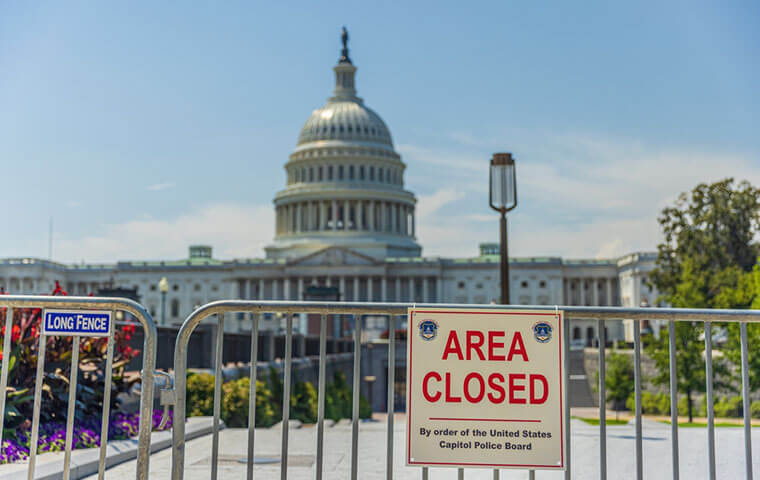 A grant of reorganization authority could prove to be a key issue since the lack of such explicit authority has been a primary reason federal courts have cited in issuing orders to block agency RIFs. Image: Framalicious/Shutterstock.com
By: FEDweek Staff
A grant of reorganization authority could prove to be a key issue since the lack of such explicit authority has been a primary reason federal courts have cited in issuing orders to block agency RIFs. Image: Framalicious/Shutterstock.com
By: FEDweek StaffFederal employee organizations and the House’s leading Democrat on federal workplace issues have denounced the Senate version of the budget reconciliation bill, with the AFGE union calling it “a direct assault on federal employees and their labor unions.”
Provisions to increase the costs for unions to operate in the workplace—which charging them a fee for payroll withholding of members’ dues—amount to “retaliation against AFGE and other unions for successfully standing up for our members and fighting this administration’s illegal attempts to obliterate our federal agencies and the patriotic civil servants who run our federal programs,” that union said.
Rep. Stephen Lynch, D-Md., acting ranking Democrat on the House Oversight and Government Reform Committee, said the measure “infringes upon collective bargaining rights of millions of hard-working, middle-class Americans and undermines basic employee protections and due process rights.”
He also called “a stunning abdication of Congress’s oversight responsibilities” language to allow Presidents for the next 10 years to reorganize federal agencies without the approval of Congress that was required under similar authorities in the past. The measure would allot $100 million to OMB to produce and carry out those plans.
A grant of reorganization authority could prove to be a key issue since the lack of such explicit authority has been a primary reason federal courts have cited in issuing orders to block agency RIFs reorganizations in general, and at several agencies individually, in lawsuits asserting that permission of Congress is needed to take such actions against agencies created and funded by law.
The measure drops House-passed language to end—with some exceptions—the FERS retirement supplement for those retiring in 2028 and later (the House earlier had abandoned provisions to require higher retirement contributions by about half of current employees and to pay smaller annuities to future retirees). However, that would be at the cost of an even larger increase than in the House bill in the required retirement contributions from those newly hired—both those who accepted “at-will” employment and those who chose to maintain civil service protections.
Forcing such a choice “incentivizes a policy of converting the civil service into a haven for political cronies and corruption, harkening back to the days of the spoils system,” the NARFE organization said. The IFPTE union similarly called the choice an “attempt to bring corruption and politicization into the government by attacking merit protections for federal employees in new positions.”
The CBO has estimated that even at the lower House level, three-fourths of new employees would accept at-will employment for cost reasons.
The Homeland Security and Governmental Affairs Committee has not yet scheduled a vote on the draft measure, which Senate Republican leaders hope to bring to a floor vote by July 4. Only a simple majority vote would be needed under special rules applying to “reconciliation” bills. Senate passage would be followed by a conference with the House, and then further voting.
Deferred Resignation Periods about to End for Many; Overall 12% Drop
Retirement Surge Likely as Deferred Resignation Periods End
Senate Rejects Bills to Defer Shutdown; Familiar Process Lies Just Ahead
Senate Bill Would Override Trump Orders against Unions
Report Describes Impact of Shutdown on Employees, Agencies
TSP Adds Detail to Upcoming Roth Conversion Feature
See also,
How to Handle Taxes Owed on TSP Roth Conversions? Use a Ladder
The Best Ages for Federal Employees to Retire
Best States to Retire for Federal Retirees: 2025

